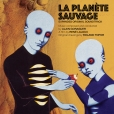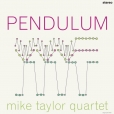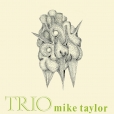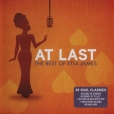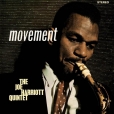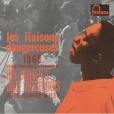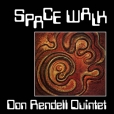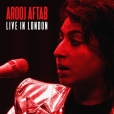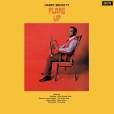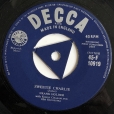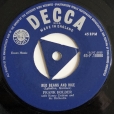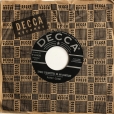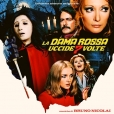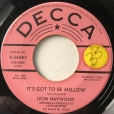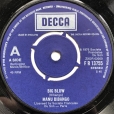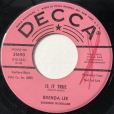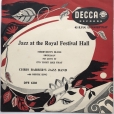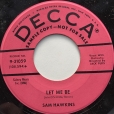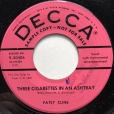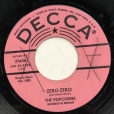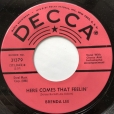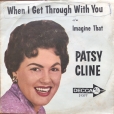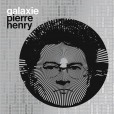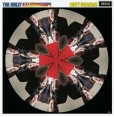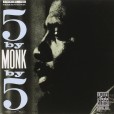Your basket is empty

Zbigniew Namyslowski
Lola
Decca
From 1964, a fresh, invigorating, up-for-it, personal take on happening US jazz — Coltrane in particular — blending in themes from Polish folk music. Try the rollicking Piatawka, with its evocation of highlander bagpipes. Scorcher!
Multi-instrumentalist Namyslowski was an alumnus of Krystof Komeda’s ground-breaking quintet. In the early sixties, he formed the Jazz Rockers with Micha Urbaniak, and in 1962 both joined The Wreckers, playing the Newport Jazz Festival. In 1964 his own Modern Jazz Quartet toured throughout England, Scotland, and Wales. “We had songs like Piatawka in the programme, inspired by Polish mountain folklore… These were the forms that had never been heard there before… Not only was I a musician from behind the ‘Iron Curtain’, but it also turned out that this musician had his own voice and showed something innovatory.”
Pianist Wlodzimierz Gulgowski plays a blinder, too; nodding to both Chopin and Mal Waldron. (A decade later he hooked up with Urbaniak, for the LPs Fusion III and Funk Factory.)
Lola was recorded in London; produced by Mike Vernon, who founded the Blue Horizon label, and produced Fleetwood Mac and David Bowie, amongst others. For the cover shot, Decca commissioned the same photographer as for the first Rolling Stones LP, to follow suit. “We are in the same sweaters from Marks & Spencers, only each in a different colour.”
The 1973 soundtrack for René Laloux’s philosophical tale of anticipation, where men are used as domestic toys by blue giants, the Draags.
The orchestral expansiveness recalls Goraguer’s sixties projects with Serge Gainsbourg, but teleported to a psychedelic spaceway of its own, mapped out in a series of vignettes — moody, baroque, wasted, hypnotic, out-there — with funky wah-wah guitars, flutes, Fender Rhodes, breaks-n-beats drumming, and haunting effects.
Demonstrably beloved by Dilla, Madlib, Air, and co.
A new deluxe edition, mixed from the recently discovered multi-track tapes, including seven previously unreleased tracks and three alternate mixes.
‘Absolutely essential,’ says All About Jazz.
‘Perhaps the best representation of a typical Joe Harriott Quintet gig of the period, combining as it does straight-ahead tracks with his free-form work… it opens with the easy swing of Morning Blue with Harriott’s alto warm, sunny and optimistic and Shake Keane’s flugelhorn light as air… Count Twelve is pure bebop rooted in the blues with some simply lovely flugelhorn from Keane and delightful piano from Pat Smythe. The relationship between Goode and drummer and Bobby Orr here is almost symbiotic, while Harriott’s own solo is wild and free-flowing.
‘Michael Garrick’s quirky Face in the Crowd follows. It’s a fine, angular performance that sits well with Harriott’s own more abstract writing. Revival is one of the saxophonist’s most Caribbean-inflected tunes and is perhaps the record’s highlight, whilst Garrick’s Blues On Blues reveals perfectly how very, very good this group really was.
‘The album concludes with three tracks: Spaces, arguably the most abstract piece Harriott ever recorded; the fine, if mainstream bop Spiritual Blues, with some great bowed bass from Goode and excellent drums from Bobby Orr; and the album’s title track has an intensity not found in all of Harriott’s free form work. It’s a stunning group tour de force, again building from comparatively simple melodic materials into something that is dark, brooding and even slightly unsettling.’
Lee Morgan, Duke Jordan, Bobby Timmons… plus three expert Latin percussionists… and outstanding contributions by Barney Wilen, on both tenor and soprano saxophones.
An overview, 1958-2017: thirty-three works, including landmarks like Le Voyage, Messe Pour le Temps Présent, Variations Pour Une Porte Et Un Soupir, Messe De Liverpool, Apocalypse De Jean and Dracula; also including fourteen never before released, like La Note Seule, and Grand Tremblement, composed in 2017, the year of his death.
Discs in digi-sleeves, inside a box with a lift-off lid. 100-page booklet.

